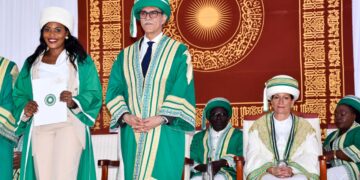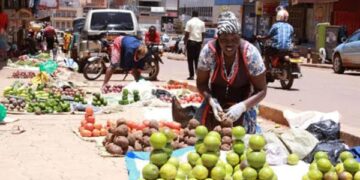By Leonard Kamugisha Akida and Brian Odwori,
KAMAPALA
Last week, the President of Uganda, HE Yoweri Kaguta Museveni Tibuhaburwa proposed to implement a ban on importing used clothes and shoes from outside the region. President Museveni spoke at the commissioning of 16 factories in the Sino-Uganda Mbale Industrial Park.
The president encouraged traders to procure textiles and footwear made within the country because there are textile factories in Uganda that are producing them. He also directed that with effect from the 1st of September this year there will be no more importation of electrical cables and meters directing that these should be bought from factories within Uganda.
Although the president says there are many factories manufacturing textiles and footwear in Uganda, traders and opposition politicians have critiqued his directive saying that the country’s cotton ginning factory does not have the capacity to produce garments and shoes.
Sharon Arach Oyat, the spokesperson for country’s second oldest political party UPC says the cotton produced in Uganda is not enough to satisfy the domestic market, which relies heavily on imports.
The ban is not a good strategy
The UPC mouthpiece says banning importation of second hand clothes is not a right strategy especially when the government has not set up alternatives to boost its capacity and to develop a vibrant textile industrial sector.
“You can’t ban second hand clothes when you don’t have cotton ginneries and when your people have literally abandoned the growing of cotton,” Arach said.
Supporting Cotton Farmers and Ginneries
Arach suggests that the government through the Operation Wealth Creation first enhances the growing of cotton by shifting to give out seedlings, training to cotton farmers as well as revamping the cotton manufacturing factories in the country.
“Government should establish ginneries that will buy these cotton produces, train farmers to be able to sustain the economy. Otherwise, its a toll order for government to implement the ban on these used textiles when ugandans are not offered alternative,”
She says this ban should be done in a phased manner to help the government train farmers and establish factories that will manage the by-products of cotton.
Banning Used Clothes Affects The Poor
Jesca Ampereza, a businesswoman dealing in used clothes in St. Balikuddembe market – Owino Kampala says the ban is likely to burden the poor people who cannot afford to buy new clothes due to the expensive costs.
“Banning imports of used clothes and shoes means that the population has to choose between buying new imported goods, or buying domestically produced goods. Ugandans will have to spend more on these goods. Poorer people, who buy second hand shoes and clothes, will bear the burden,” she said.
Supporting Local Investors
A section of Mps have tasked President Museveni and his Government to first support the local investors to grow incase he wants to ban importation of goods such as second hand clothes.

Katikamu North MP Denis Ssekabira says this is not the first time the President is making such pronouncement, but they never happen.However, Ntoroko County MP Rwemulikya Ibanda says although it is a good idea to promote local industries but Government has not built the capacity of these industries to satisfy the demand.
Effects of the ban on international trade
Jolly Uwineza, a dealer in imported Chinese used female clothes says the presidential directive could create undesirable effects such as promotion of illegal trade and affects potential international trade flow.
“The presidential directive on banning used clothes would be a costly policy with limited long-term benefits. It could also have undesirable effects, like promoting illegal trade,” Uwineza said
“The effort to promote industrialisation in the Uganda is commendable – but it needs to be directed toward coherent industrial policies rather than shutting out potentially beneficial international trade flows,” she added







































